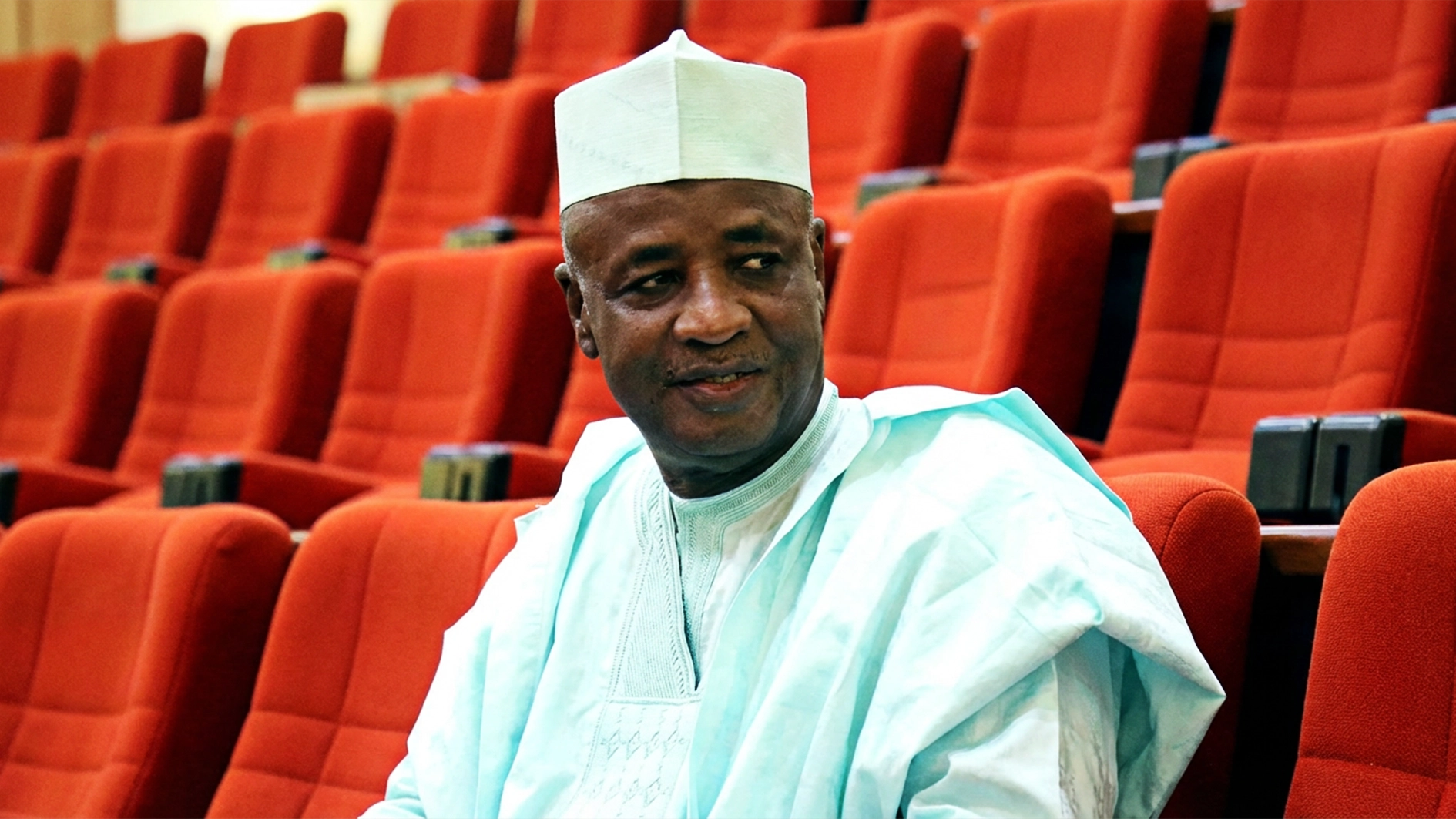Adetutu Stephen Oniya is the Chief Executive Officer of Softcity Group. A Chartered Information Technology Professional, member of the Computer Professional Registration Council of Nigeria, a senior member of the Institute of Information Management (Africa).

Softcity has teams and registered entities in Nigeria, South Africa and the United States of America. In this interview with YEMI ADEPETU, Oniya spoke on what can make 5G network deployment successful in Nigeria, especially improving peoples’ living standards. He also spoke on other germane industry issues.
Nigeria is to commercially deploy 5G network by January 2022, what is your advice to the industry on this technology?
Adopting the 5G technology standard in Nigeria’s cellular networks is a welcome development. I am of the opinion that the regulator and telecoms service providers are well aware of the potential pros and cons of 5G adoption, with regards to data security, socio-economic viability, and monetization.
5G has enormous potential to reduce the cost of running Internet-dependent processes and improving operations in government, institutions and the private sector. It is important to advise the 5G stakeholders to move fast ahead of the 5G reality in Nigeria; technology can be useless when applied to a system that does not impact positively on people or processes. I am not talking of how the 5G download speed will make video streaming and Internet surfing faster; we should be more concerned about how Nigerians will benefit from the real essence of 5G in relation to our drive for a digital economy and fulfilment of the social contract of the government to the people.
Nations are adopting 5G to improve automation, connect people to opportunities, and connect devices to endless possibilities. I have read how several online media in Nigeria published the benefits of 5G from global performance reports. This does not address our uniqueness in Nigeria. The question I keep asking myself is, what has been done in Nigeria to ensure we are ready to carry on this level of data security risk. Also, the business use-case of 5G has not been proven by the stakeholders to guarantee an improved standard of living for a large number of Nigerians – all we are currently working with are the potential of 5G in Nigeria.
5G will come with a hyper-density network and it will involve a huge volume of data in transit due to the large bandwidth; hackers will invest lesser efforts and gain access to more private data. Also, the realistic viability of the high-end benefits of 5G in relation to the Internet of Things (IoT), Artificial Intelligence (AI), Remote surgical operations among others remains locally unproven with sufficient data.
This is a nation where a large number of people cannot afford 5G devices or apply a good knowledge of technology in their day-to-day activities; talk less of understanding their rights to data protection. 5G is great and necessary to maintain global competitiveness, but more emphasis needs to be placed on doing proper groundwork and investing in the massive orientation of Nigerians, so the big data players will not take advantage of the unreadiness of the common Nigerian.
You talked about 5G and the need for improved security, what measures can be adopted to curb the growing influence of cybercrimes in the country?
I am happy that this question perfectly reflects the several efforts made against cybercrime in Nigeria. In all fairness, the Nigerian state has invested resources in tackling the problem of cybercrimes.
Before I make recommendations to further these efforts, it is important that we all know that cybercrime has locally evolved beyond just fueling financial frauds and data breaches, it is now contributing to kidnappings and senseless murder across the country.
Cybercrime should no longer be treated as a technological anomaly but as a national security issue. It is until this is done that our security agencies can sufficiently keep up with the advancing evolution of cybercrime and be able to properly identify the elements of human error that make us more vulnerable to the vices of cybercriminals.
Let’s look at the emerging digital economy in Nigeria, do you foresee challenges?
First, it is important to know that the digital economy is a continuous process, as there is no absolute definition of how it is to be implemented.
It will be inappropriate to suggest that there is a specific approach to how the digital economy must be pursued; this is because digitalization of an economy is determined by the uniqueness of the socio-economic influences of that economy.
Right now, I will say we have started well, but whether we are ready to handle the challenges and obstacles that would continue to surface is what I cannot confirm. Promoting digital economy policies are the only ways we can ensure Nigeria do not miss out on the fourth industrial revolution or Industry 4.0 as some will like to call it.
The driving principle of a digital economy should be interconnectivity, information transparency, technology adoption and decentralized decision. I do not see how we claim to be promoting a digital economy, and yet banned social platforms like Twitter. This only proves that we are not ready to properly manage the challenges a digital economy will pose as it evolves.
Some key features of a digital economy are the mobility of both tangible and intangible business elements, which when coupled with data will introduce new economic opportunities. I believe the Nigerian government knows the immense benefits that can be derived from promoting a digital economy, but it is unbelievable to witness how the same government with its good digital intentions is promoting practices that are now adversely destroying a major byproduct of digitalization – which is the Gig economy in Nigeria.
The Gig economy is the new labor market that is driven by digitalization, which allows several Nigerians to have side hustles based on short-term contracts and freelance entrepreneurship. Look at how Uber has empowered several drivers, how Instagram has introduced a dynamic way of selling, and how the now-banned Twitter has denied many Nigerians the opportunity they had to earn a living.
Seriously speaking, promoting a digital economy without a better strategy to manage its challenges will just be another wasted effort. This is not what we want for Nigeria.
What is your assessment of the e-Naira and what do you think the CBN can do to minimize activities of criminals and fraudsters?
The Central Bank of Nigeria (CBN) issued digital currency (CBDC) is a great initiative in the short term, its relevance in the long term will be determined by its impact on financial inclusion, its competitive advantage against existing digital banking systems and its sustainability vis-a-vis the innovative trend of decentralized virtual currencies like bitcoin among others.
Virtual payment is not new in Nigeria because we already have fast-growing digital banking and disruptive fintech solutions. Nevertheless, a CBDC will introduce advantages such as better controlled risks of saving e-money directly in a central bank’s wallet, secured competition against the confidence crisis of cryptocurrencies, and change the dynamics of economic transactions in Nigeria – if backed by the right monetary policies.
On minimizing the activities of criminals and fraudsters, I think the Central Bank and the Financial Institutions in Nigeria have already achieved a lot in this regard; of course, financial criminals will continue to devise new ways of going about their illegal activities, but regardless of the persisting threats in the financial industry, I do not think at the moment that the introduction of the e-Naira would introduce any particular form of criminal activities.
The e-Naira and the Naira that we are used to are the same in value and governed by the same monetary policies. The only difference is that the e-Naira is a virtual currency that is currently being saved directly with the Central Bank.
On a more personal note, I think the e-Naira should have been considered more as an initiative of the future and whatever research/investigation done by the CBN be publicly summarized and subjected to opinions of Nigerian experts in technology, economy and law. We don’t want a monetary strategy that can collapse the growth we have experienced in our digital banking ecosystem; neither do we want to subject the future of the already brutalized Naira to experimentations.
Whether electronic or physical, the status of the Naira will be governed by the same dynamics of Nigeria’s existing banking systems and we seriously need a thorough SWOT analysis by experts across the country to properly understand the risks and challenges we are getting ourselves into – This is not to deny the CBN of its independence in determining how our monetary system is governed.
The global race for technology adoption is not a matter of who comes first or who comes last – so the issue of whether Nigeria is first with e-Currency in Africa is just another jamboree; technology is not a medal, it is a tool in the hands of people and whatever will be its impact will be determined by the understanding and intentions guiding its adoption – I seriously hope this is not another GIGO effect in Nigeria, “garbage in is always garbage out.”
From your perspective, what are the new happenings in the ICT sector of the economy?
As a member of the Computer Professionals Registration Council of Nigeria (CPN), I am bound in ethics and professionalism to promote the mandate of the council has established by Decree No. 49 of 1993, promulgated on June 10, and gazetted on August 9, of that year.
The issue with Nigeria’s ICT sector is worrisome, as it is becoming increasingly challenging to separate the practice of computing as a profession from the adoption of technology as a form of entrepreneurship. The former is institutional, while the latter is a form of business.
I seriously fear for the future of computing in Nigeria because the ecosystem has been tainted with practices that are non-compliant with global best practices and highly dominated by the investors that only share a profit-sharing vision of the ventures they support and are not really interested in the ethics, standards and regulatory requirements of the technology practices driving their businesses.
All the above has made Nigeria a trust deficient society because both Nigerians and the global communities are conscious of how quackery and incompetence have dominated our society when it comes to technology. This is not to say we don’t have very competent and highly professional technology experts in Nigeria – but I do not think we have allowed them to do their jobs sufficiently.
For 17 years, I have started a journey to build a technology-as-a-service brand, and I have found myself making an unnecessary effort in an attempt to sell trust to clients in USA, Europe and other countries. The issue of trust deficiency has not only branded Nigeria overseas, it is also prevalent internally, as even Nigerians do not know whom to trust when it comes to technology implementation. This is why CPN was mandated to maintain a register of tested and certified professionals in Nigeria, and this directory is published online for anyone to verify on cpn.gov.ng, nevertheless, it is not an easy task for the leadership of CPN to regulate and control the practice of computing without threading gently to avoid the potential crimpling impact of the entrepreneurship potentials that technology itself provides Nigerians in terms of self-employment, innovation and business continuity.






